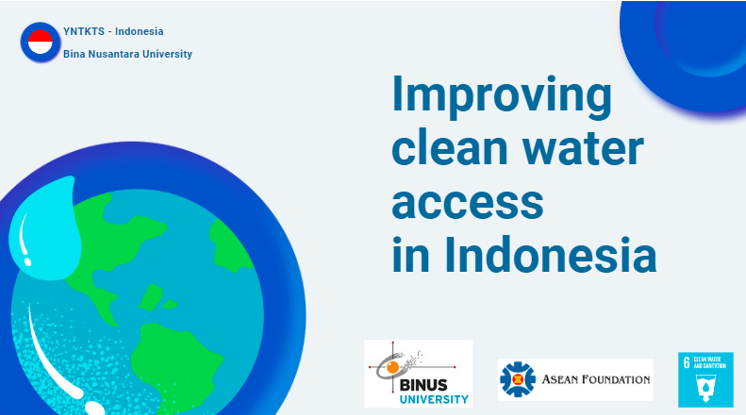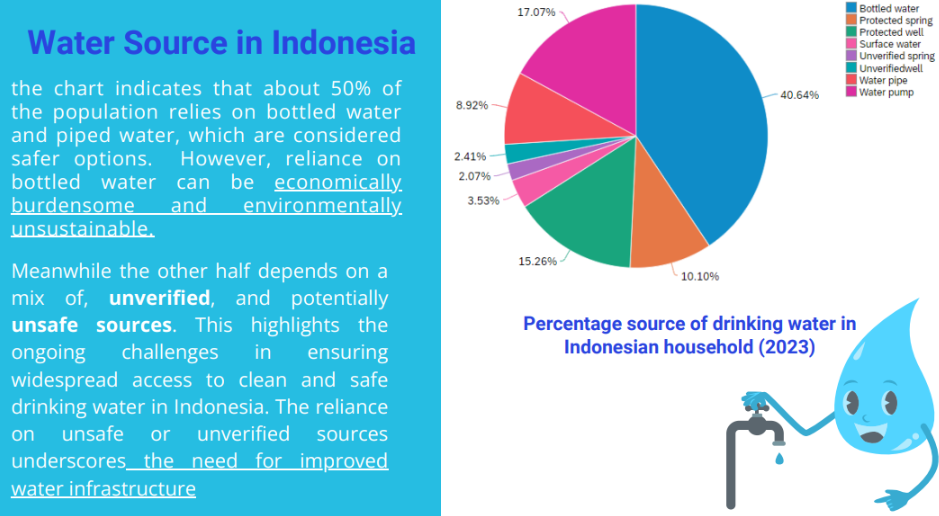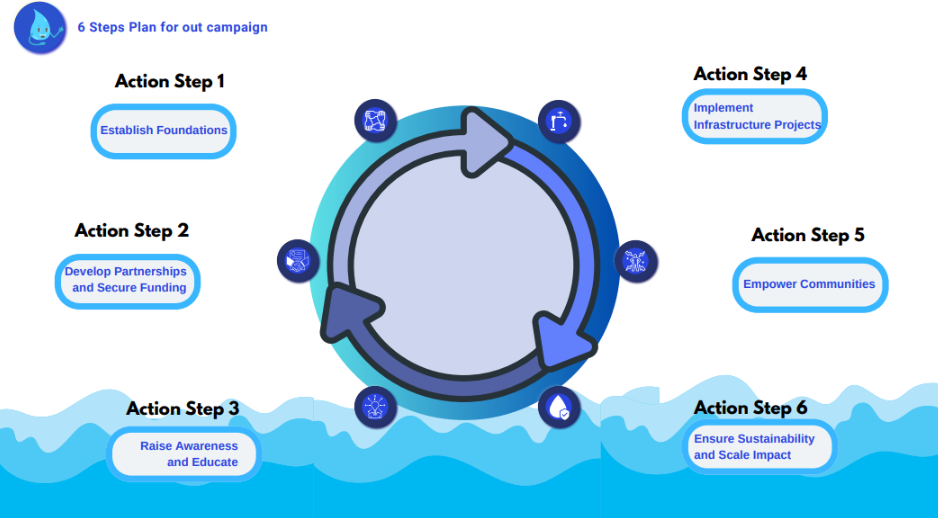Improving Clean Water Access in Indonesia

Jakarta, the capital city of Indonesia, faces significant challenges in ensuring equal access to clean water for its residents. The city’s ambitious goal of becoming a global city is hindered by the uneven distribution of clean water services, particularly in the northern regions. This article highlights the efforts being made by the Jakarta Provincial Government and Perumda PAM Jaya to improve clean water access and distribution.
The journey began at the Bina Nusantara University, with tasks assigned by the courses “Business Intelligence and Data Warehousing” taught by Lay Christian and “Business Analytics” guided by Richard. The YNTKTS team, consisting of Ryan Hadinata Siddit and Hubertus Leonardo Sunarta, set their big goal: “To ensure that every Indonesian has access to safe, clean, and sustainable water sources, promoting health, well-being, and environmental stewardship across the nation.”
Background Story
Jakarta is home to over 10 million people, with a significant portion of the population living in the northern regions. However, these areas often lack reliable access to clean water, forcing residents to rely on alternative and often expensive sources. The scarcity of clean water is exacerbated by differences in water quality between regions, with North Jakarta experiencing slightly salty water due to the proximity of seawater intrusion into the groundwater.

Impact of Dirty Water
- Diseases such as diarrhea, cholera, typhoid fever, and dysentery
- Parasitic infections, such as those caused by giardia and amoeba
- Chronic malnutrition, particularly in children, will affect their growth and cognitive development.
- Life Expectancy being reduced
- Unsafe water used for irrigation can contaminate crops, affecting food safety and economy for farmers
Campaign
In order to combat the problems we’re facing, we are planning on starting a campaign called Hydrate Indonesia. To ensure that every Indonesian has access to safe and sustainable water sources.
Vision For Our Campaign
To ensure that every Indonesian has access to safe, clean, and sustainable water sources, promoting health, well-being, and environmental stewardship across the nation.
Our Mission
- Increase Access to Clean Water Implement infrastructure projects and innovative solutions to provide clean water to underserved and remote communities across Indonesia.
- Improve Water Quality
Collaborate with local governments and organizations to monitor and improve the quality of water sources, reducing pollutants and contaminants. - Raise Awareness
Launch nationwide campaigns to raise awareness about the critical importance of clean water for health and development, engaging communities, schools, and businesses.
Goals
- Influence national policy to increase investment in water infrastructure and conservation by 50% by 2030.
- Establish sustainable water management practices in 1,000 communities by 2025.
- Educate at least 10 million people on water conservation and hygiene practices by 2025.
- Achieve a 90% reduction in waterborne diseases by 2025 through improved water quality.
- Ensure 100% of Indonesians have access to clean drinking water by 2030.

- Step 1
Our first step is to establish the foundations of our campaign. This involves identifying our goals, target communities, and key stakeholders. By laying this groundwork, we ensure that our objectives are clear and achievable. This phase is crucial as it sets the direction and framework for all our subsequent actions. - Step 2
Next, we focus on developing strategic partnerships and securing the necessary funding. Collaboration with governments, private sectors, NGOs, and other organizations is essential. These partnerships bring in diverse expertise, resources, and support. Securing funding is equally vital to ensure we have the means to implement our projects effectively and sustainably. - Step 3
Raising awareness and educating the public about the importance of clean water is the vital part of our campaign. We’ll organize educational programs, workshops, and community events to inform people about water conservation, hygiene practices, and the health benefits of clean water. An informed community is an empowered community, and this step helps build widespread support and proactive participation. - Step 4
We’ll implement infrastructure projects such as constructing wells, installing purification systems, and laying pipelines. Ensuring these facilities are built to last and are properly maintained is crucial for providing reliable access to clean water. - Step 5
We will train community members on managing and maintaining water facilities, encourage community-led initiatives, and foster a sense of ownership and pride. When communities take charge of their water resources, it leads to long-term success and self-sufficiency. - Step 6
Our final step is to ensure the long-term sustainability of our clean water initiatives. This involves developing strategies for ongoing maintenance, monitoring the impact of our projects, and scaling successful initiatives to reach more communities. By ensuring sustainability, we make sure that the benefits of our work continue to improve lives for years to come.
Final Words
With this Campaign we hope to see the better Indonesia in the future, with the collaboration and support of the governments and all of Indonesians, we believe that our goals is possible.
by : Ryan Hadinata Siddit (2602105260) & Hubertus Leonardo Sunarta (2602064456)

